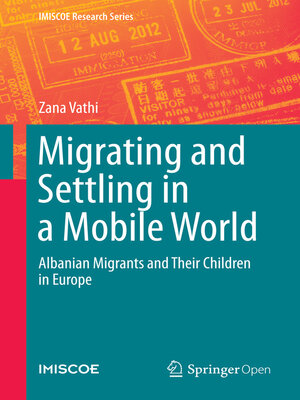Migrating and Settling in a Mobile World
ebook ∣ Albanian Migrants and Their Children in Europe · IMISCOE Research Series
By Zana Vathi

Sign up to save your library
With an OverDrive account, you can save your favorite libraries for at-a-glance information about availability. Find out more about OverDrive accounts.
Find this title in Libby, the library reading app by OverDrive.



Search for a digital library with this title
Title found at these libraries:
| Library Name | Distance |
|---|---|
| Loading... |
Departing from the traditional focus on the adult children of settled migrants and the main immigration countries of continental North-Western Europe, this study centres on Southern Europe and Great Britain and a very recently settled immigrant group. The result is an illuminating early look at a second generation "in-the-making". Indeed, the findings provide ample grounds for pragmatic and forward-looking policy to enable these migrant-origin youngsters, and others like them, to more fully attain their potential.
The book ends with a call to reassess the term "second generation" as it is currently used in policy and scholarly works. Children of migrants seldom see themselves as a particular and homogeneous group with ethnicity as an intrinsic identifying quality. More importantly, they make use of all the limited resources at their disposal, and view their integration processes through broader geographies – showing sometimes a cosmopolitan orientation, but also using localized reference points, such as the school, city, or urban neighbourhood.







